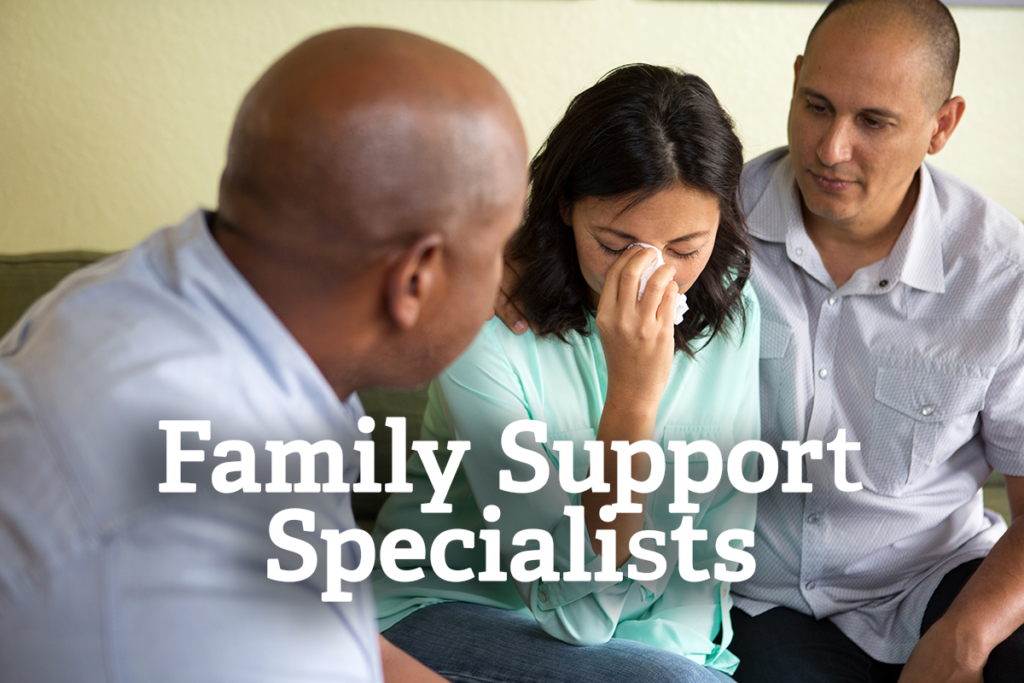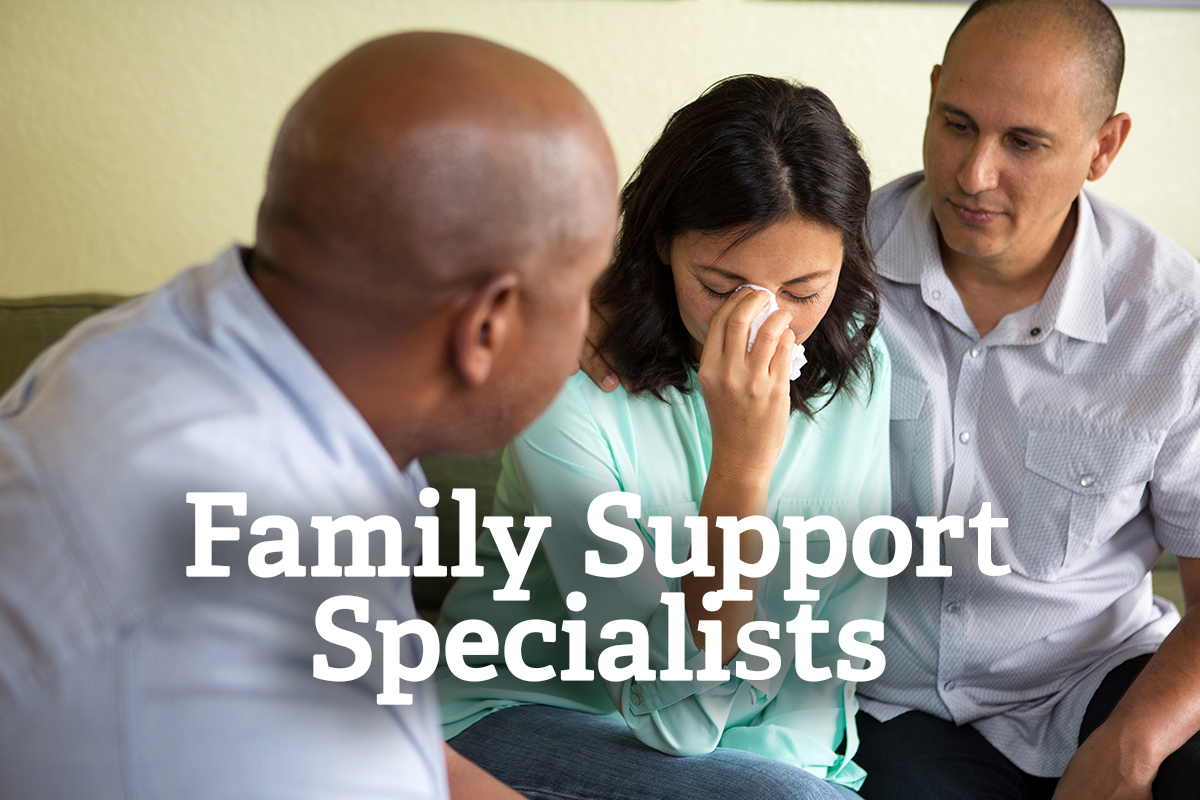We’re recruiting! Learn more about the role…
Inside the Role
For Family Support Specialists (FSS), we work directly with families who are experiencing trauma due to the injury, illness, or death of a loved one. We assess how families are processing this information and work to find the most appropriate time to introduce information about organ donation. We then lead the donation conversation, prioritizing providing families with support and education around the gift of donation. The families we meet with are often navigating immense grief and unimaginable loss. But for many families, knowing their loved one can save someone’s life can offer some hope or healing.

How we get involved:
Across the United States, when a ventilated patient meets specific end-of-life clinical qualifications, hospitals are legally required to refer those patients to the local organ donation organization. For Montana, Alaska, northern Idaho, and most of Washington state that organization is LifeCenter Northwest. From the time we are notified of a patient, our staff evaluates whether that patient is medically suitable to be an organ donor and gets updates on how their family is processing the situation.
When it is determined a patient may be a candidate for organ donation, an FSS is deployed to that hospital along with a clinical teammate. We meet with the hospital staff caring for the patient and family including doctors, bedside nurses, social workers, chaplains, and others. While our clinical teammate works on evaluating the patient’s organ donation potential, we work to assess the best time to introduce the topic of organ donation to the family.
The focus of our work:
When we meet with a potential donor family, our focus is learning what the family understands about the patient’s condition and what support they need at the moment. When appropriate, we introduce organ donation. We offer the family education on the donation process and speak to the powerful life-saving impact donation can have. Our role is to share what it means for a donor, their family, and their recipients when a family chooses to save lives through donation.
While these conversations can be difficult, we are privileged to share space with families who consider helping others despite their grief. A challenge we face in this role is occasionally working with families who are not supportive of their loved one’s previous decision to register as an organ donor. In this situation, we work closely with our team and hospital partners to navigate this situation as sensitively and compassionately as possible, while maintaining our role as organ donation advocates. An FSS must be persistent and optimistic in their work supporting families through donation authorization – always keeping in mind the patients on the transplant waiting list who are counting on us.
Support for our role:
LifeCenter supports staff in family support roles with extensive training and a dedicated team trainer, 24/7 availability of a family support administrator-on-call, and a strong team culture of support and collaboration.
Who this role is ideal for:
The FSS role is ideal for someone with a master’s in social work or a closely related field. Experience in medical social work, palliative care, or hospice care is important, in addition to professional experience with crisis intervention, trauma, and loss. End-of-life experience with patients or families is also beneficial. This role is a good fit for someone who appreciates variety in their day-to-day work, as no two days are ever the same. An FSS should be comfortable navigating ambiguity and rapidly changing plans. This person should be comfortable with travel, particularly by car, and working with new staff daily, both from LifeCenter and different hospitals. They should be eager to contribute to a collaborative, mission-driven team.
Traits of successful team members include the ability to stay calm despite highly stressful situations, being comfortable leading difficult conversations, and being emotionally prepared for being present at end-of-life situations. We work exclusively with families who are experiencing some of the hardest days of their lives. A candidate should feel confident this is a work environment they find energizing and fulfilling knowing transplant patient lives can be saved. Strong professional boundaries and self-care habits are a necessity with this work.
An FSS should be open to professional support, including performance reviews and coaching, resiliency coaching, and mentoring. And finally, an FSS should embody the belief that donation can have a positive impact on families, and model that attitude in all interactions with potential donor families, healthcare teams, and LifeCenter employees.
Hear about the role from our own team!
Nettie
“I often describe our role as coming alongside a family in a tragic time and providing them compassionate care while sharing important information about the gift of donation in a way that inspires them… We also get to be a voice and an advocate for people who have made a decision to be a donor, even when their families don’t agree or support the donation decision. We have to truly believe in organ donation and also be an advocate for patients awaiting a new organ to live. We aren’t here to take something from these grieving families, but to offer them a truly rare opportunity to make an impact on others’ lives through the gift of organ donation.”
Andrew
“When it comes to working with these families and the positions that they are in, the pain and loss that they feel, the hope and joy that they look forward to with donation, integrity is at the forefront of our work to uphold the profound purpose our work plays a role in.”
Brian
“The biggest thing that keeps me coming back day after day is seeing families find some hope and meaning in the midst of unspeakable grief and loss. Donation has the potential to change the end of the story for families and it is an incredible privilege to be a part of that.”
Derek
“There are very few lines of work in which an employee can look back at their week and count the number of lives that were saved due to their efforts. Donation is a team effort, and I’m extremely grateful to be a link in the chain that plays a role in saving the lives of others.”
Vanessa
“Every family has unique needs and deserves to be well cared for throughout the donation process. It is important to be respectful and earn the trust of the family—we are here to walk with them, educate them and address fears. I most resonate with our value of courage because it’s something that I have to be very intentional about and draw
on every day in this work.”



